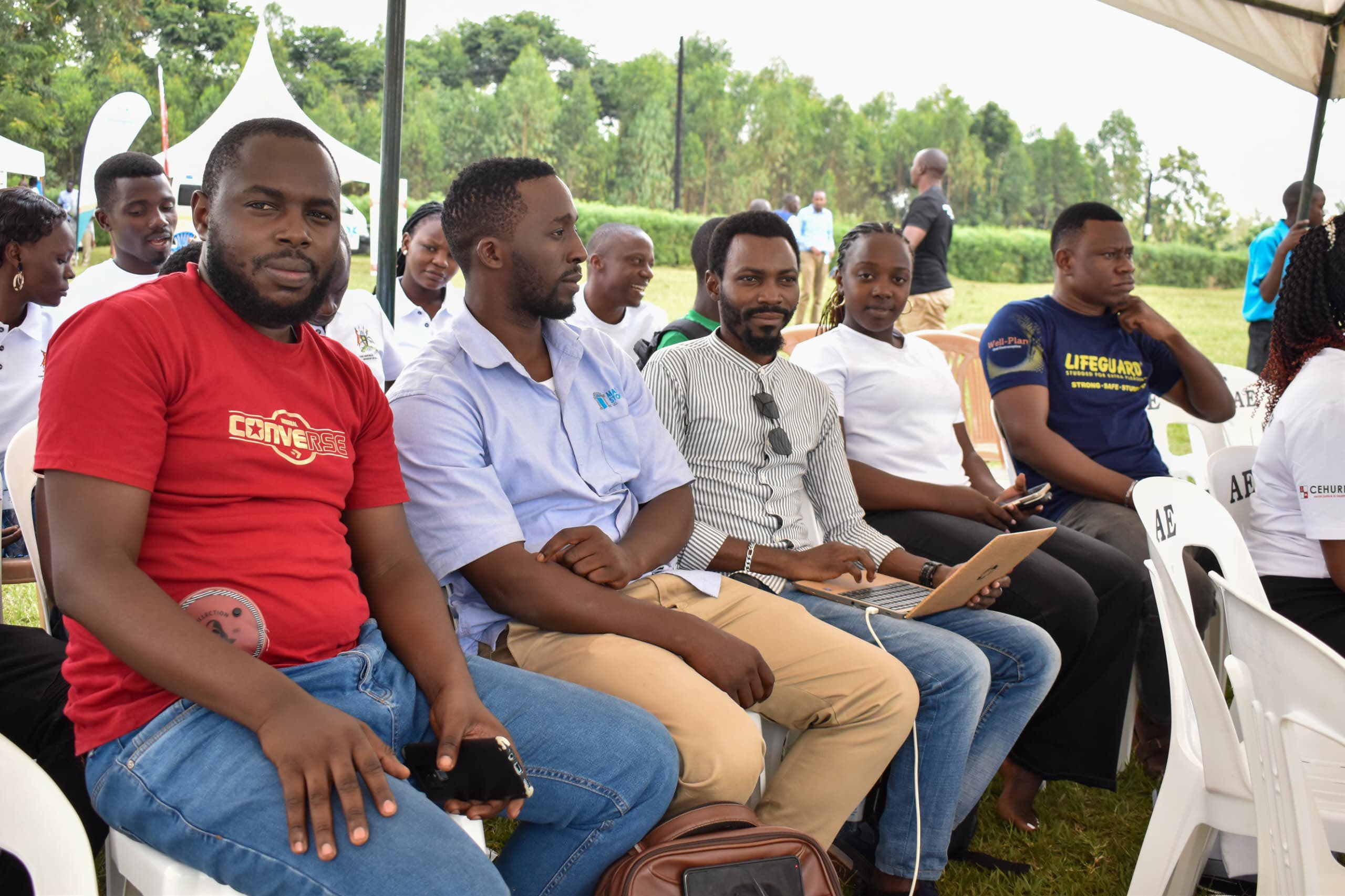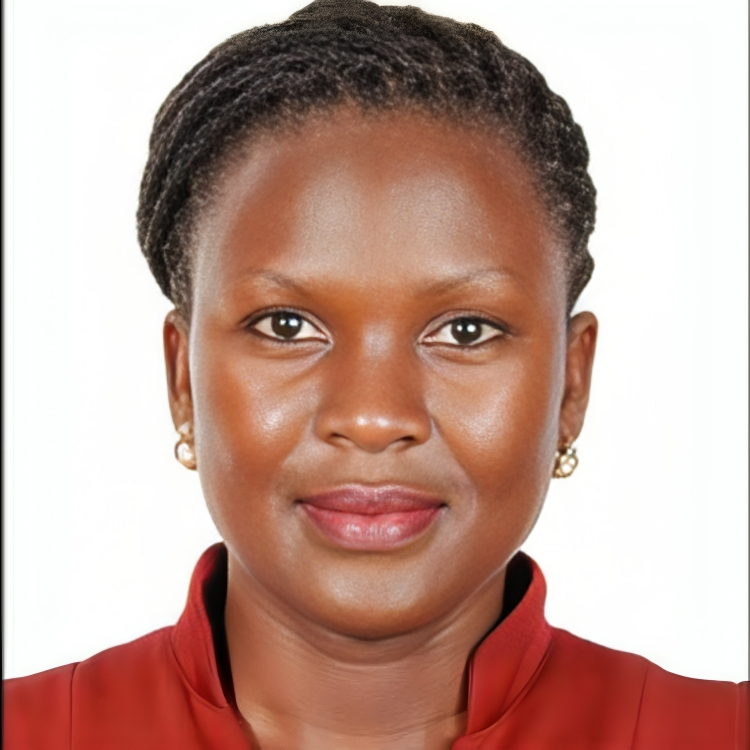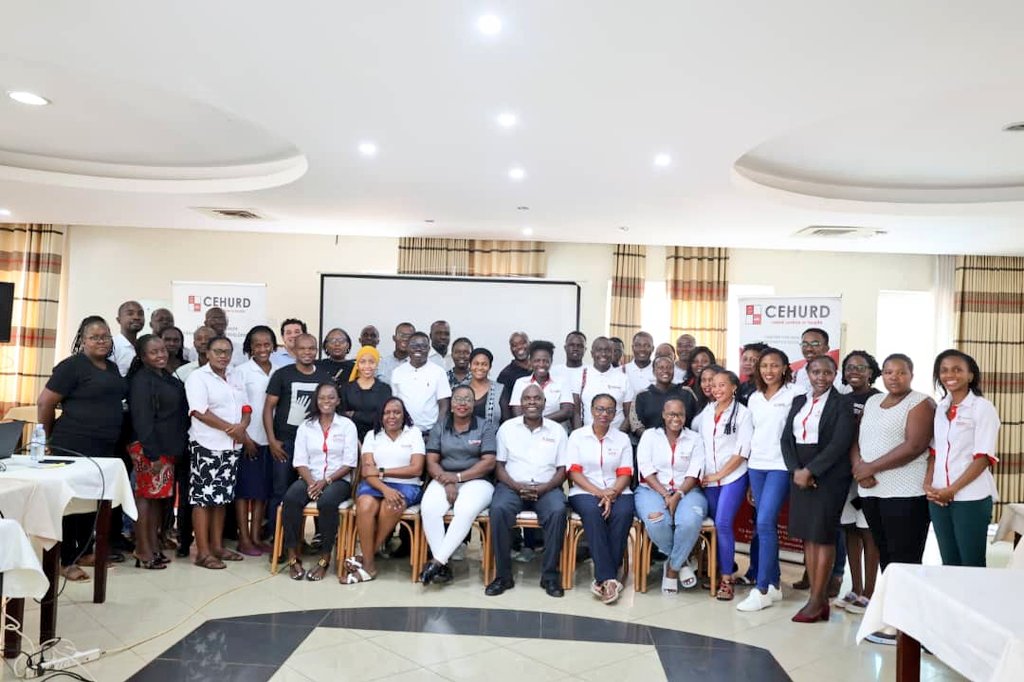Congratulations to the CEHURD media fellows who excelled at the 2024 Uganda National Journalism Awards, presented by the African Centre for Media Excellence (ACME). The awards recognized outstanding journalistic contributions within the Ugandan media landscape, with CEHURD fellows taking home several prestigious accolades.
Sam Ssebuliba, a CEHURD fellow, won the award for Best Health Reporting. Daniel Lutaaya was recognized in the Public Accountability category, while Rhonet Atwiine placed second in Health Reporting. Julius Odeke, a runner-up for Traditional and Cultural Reporting from the New Vision, and Hafiz Bakhit from Arua One FM, a runner-up for Community Reporting, also demonstrated their excellence.
In an interview, Daniel Lutaaya, CEO of News 247 Uganda, attributed his success to the trainings provided by CEHURD on reporting about injustices in Sexual and Reproductive Health and Rights (SRHR). He stated,
❝Trainings by CEHURD on reporting about injustices in SRHR have spurred my interest in documenting poor public healthcare services, especially in rural communities. One of the winning stories was about a health centre in Terego, West Nile, where midwives were using phone lights and torches to deliver babies at night because the region isn’t connected to electricity. CEHURD has trained me on how best to seek out and tell the health angle of stories. This has become a vital skill for me in my reporting, and I believe it played a great part in winning this award.❞
Samuel Ssebuliba, a Spark TV journalist, expressed his gratitude to CEHURD for supporting him in producing a story that won him an award. He said,
❝The story that CEHURD supported me to do has won me an award. You have really impacted my journalism career. Through CEHURD’s media fellowship, I became aware of numerous under reported SRHR issues that silently impact people, particularly women in remote areas. For instance, in Bagwe Island on Lake Wamala in Kassanda district, where I conducted my story, mothers are dying during childbirth due to lack of access to hospitals.❞
Hafiz Bakhit, another CEHURD fellow, attributed his success to the support received from the organization. He stated,
❝The CEHURD-supported story titled ‘We got pregnant in search for food’ is among the four stories in the body of my submission that earned me this place. The other is also a health piece titled ‘tobacco companies reap trillions as unsuspecting consumers dig own graves,’ which was also inspired by CEHURD after the fellowship. Thank you so much CEHURD for the wake-up call, inspiration, and support.❞
These achievements showcase the positive impact of CEHURD’s efforts in empowering media practitioners and promoting impactful journalism in Uganda. Through the annual media fellowship program, CEHURD has played a crucial role in enhancing journalists’ understanding of reporting on health and human rights issues nationwide.
❝CEHURD’s media fellowship gave me a direction on story angles and pitching impactful stories that change behavioral patterns. The experiences during and after the training put me on a journey to enroll for a human rights course.❞ ~Esther Bridget Nakalya from the Daily Monitor.
The fellowship covers topics such as the Sexual & Reproductive Health & Rights (SRHR) of young people, mental health, Values Clarification & Attitude Transformation, human rights-based approach to SRHR, strategic communication, story pitching, and effective advocacy techniques.
Journalism is a powerful tool for creating change through raising awareness, sparking conversation, and inspiring action, ultimately contributing to a more informed and empathetic society. CEHURD’s media fellowship program continues to equip journalists with the necessary skills and knowledge to produce impactful stories that make a difference in the lives of Ugandans.
Compiled by CEHURD’s Communications Department.




